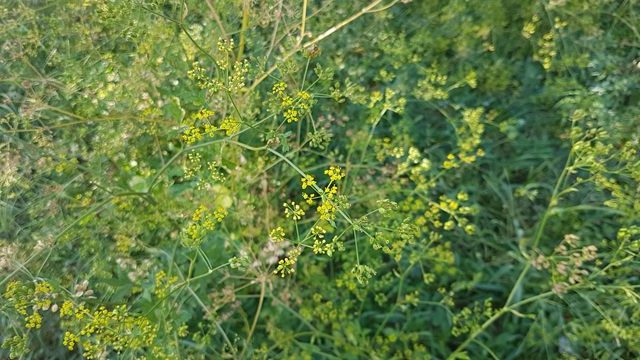[Versione in italiano dell’articolo – Un profumo selvatico, il finocchietto]
Wild fennel is easily found in uncultivated areas where there is less human presence. A plant that can grow up to two metres in height, it is characterised by its greenish-yellow flowering tops and oval, striped seeds.

The most commonly used parts of the plant in herbal medicine are the seeds, which when drunk as an infusion help in cases of digestive problems, with carminative and eupeptic properties; they are also useful in cases of menstrual pain. The seeds are also known to have galactogenic properties.
The scent of wild fennel is reminiscent of aniseed, with a penetrating, balsamic note that opens the breath and relaxes the abdomen. At the same time, the essential oil in particular, if breathed in small doses, can be invigorating and stimulating.
What support can wild fennel give us from an emotional point of view? We could say that this plant has a wild spirit and is not particularly sociable (it does very well on its own in difficult terrain and high temperatures). It is a plant that brings warmth, a warmth that speaks to us of our inner strength, of our ability to be ourselves. Its flower makes a gesture of openness (it is composed of umbrellas with rays) and this sometimes reminds me how important it is to remain open to encounters with people, animals and places, with which we are intrinsically related while choosing our own position.
From a physical point of view, the main constituents of wild fennel essential oil are trans-anethole, ketones and coumarins. It is therefore particularly effective as an oestrogen-like, galactogenic, antispasmodic and carminative.
A drop in a little oil or cream smeared on the abdomen can help for a painful or infrequent menstrual cycle as well as flatulence and abdominal spasms.
It should not be used during pregnancy and should be used with great caution for young children (in my opinion, pre-dosed creams are preferable for children so as not to get the quantities wrong).
